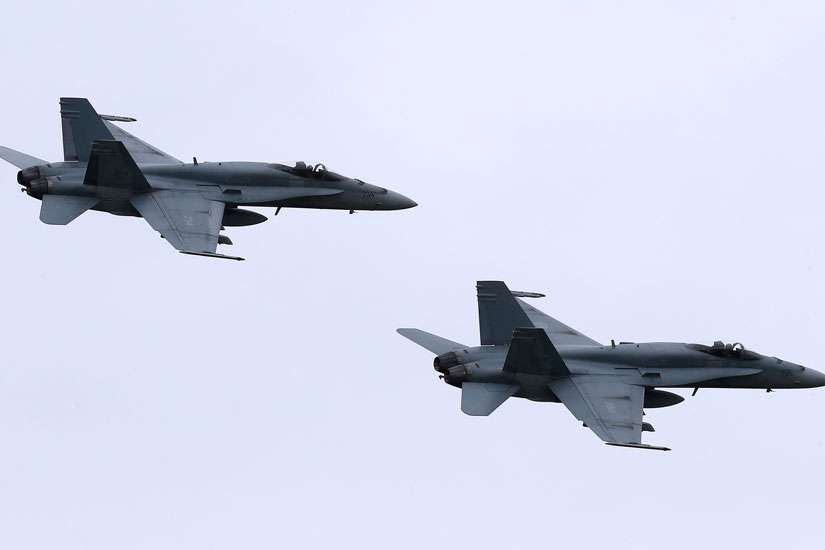Shortly after his Oct. 19 election, Prime Minister Justin Trudeau announced Canada was pulling out of the U.S.-led air-strike campaign against Islamic State positions in Iraq and Syria.
Carl Hetu, national director of the Canadian branch of the Catholic Near East Welfare Association, said "it was about time" for Canada to abandon the military approach.
"Needless to say, that military solutions rarely help to solve anything on the ground. What's more, Canada doesn't have any military power, whatsoever," said Hetu.
From a combat perspective, Hetu said that "since World War II, the Canadian Armed Forces never made a difference in any conflict.”
"The military did make a difference in missions under the United Nations, like in Korea, Bosnia and others, but to think that we can make a difference in Syria with our military forces is an illusion.”
He added that in the last two decades Canada distanced itself from its traditional peacekeeping role, with the Canadian military getting involved in several combat missions.
"The world has changed, it's now more complex and its violence is more concrete. What will be Canada's involvement in that new reality?" Hetu asked.
Some Christians are hesitant about Canada's decision to pull out of the bombing campaigns against Islamic State. On social media, some people have argued that Trudeau has "abandoned" Middle Eastern Christians.
"That's utterly false," Hetu said. "Militarily speaking, we shouldn't be involved there, in the first place. It's pure nonsense to think that we'll be able to make a difference through military action. The only viable solution and the only way to make a difference is through a ground-breaking diplomacy that will find new ways, new strategies to bring peace and stability in the Middle East.
"Yes, it's complex and complicated. But it's much better than war. War is never an alternative. We must turn our back on our warmongering habits, and work harder toward peace habits," said Hetu.
Marie-Claude Lalonde, the national director of Aid to the Church in Need, was not as categorical as Hetu.
"As a Catholic, I'm of course opposed to war," said Lalonde.
"However, what are the alternatives? Are we really willing to let things get worse than they are today?" she asked as she reflected on the atrocities committed by Islamic State fighters in Iraq and Syria.
Aid to the Church in Need never took an official position on the legality or the morality of air strikes against Islamic State, and Lalonde said the agency's partners in the Middle East are unable to evaluate the actual efficiency of the strikes.
When questioned about what could be the best possible policy for Canada in Middle East — should Canada continue bombing Islamic State positions or, instead, open its borders to refugees — Lalonde replied, "None of the above."
"If they were offered a true alternative, those people would happily stay in their native homeland. Opening our borders so that thousands of refugees may settle in Canada is, of course, a generous initiative. Unfortunately, it's not enough. Some people won't be able to leave, especially the poor, the sick, the elderly, the women or the young children," she said.
Trudeau intends to bring 25,000 Syrian government-sponsored refugees to Canada by the end of the year. That is in addition to privately-sponsored refugees that could number as high as10,000 over a much longer timeframe.


